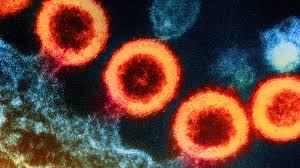Why is HIV so hard to cure?
Time:2023/03/30Highly effective treatment for HIV hit the market in 1996, transforming what was once a death sentence into a manageable health condition. Today, the therapy, a combination of drugs called antiretrovirals, is so safe, tolerable and effective, that it has extended recipients’ life expectancy to near normal. But despite the fact that these medications can inhibit viral replication to such a degree that it’s undetectable by standard tests, they cannot eradicate HIV from the body.

Standing in the way is what’s known as the HIV reservoir.
This viral reservoir is composed in large part of long-lived immune cells that enter a resting, or latent, state. Antiretrovirals only target cells that are actively producing new copies of the virus. So when HIV has infected a cell that is in a non-replicating state, the virus remains under the radar of these medications. Stop the treatment, and at any moment, any of these cells, which clone themselves, can restart their engines and repopulate the body with HIV.
This phenomenon is why people with HIV typically experience a viral rebound within a few weeks of stopping their antiretrovirals. And it is the reason why, given the harm such viral replication causes the body, those living with HIV must remain on treatment for the virus indefinitely to mitigate the deleterious impacts of the infection.
“A key new advance is the finding that those cells which harbor the virus seem resistant to dying, a problem with cancer cells,” HIV cure researcher Steven Deeks, a professor of medicine at University of California, San Francisco, says of the viral reservoir. “We will be leveraging new cancer therapies aimed at targeting these resilient, hard-to-kill cells.”
【Last : Do p... 】 【[ Back ]】 【 Next : HIV ...】






